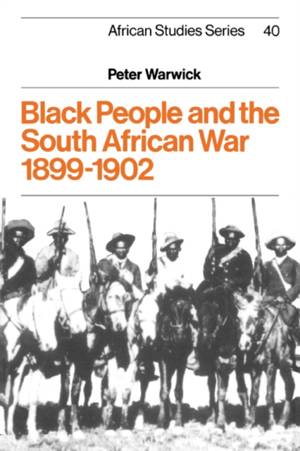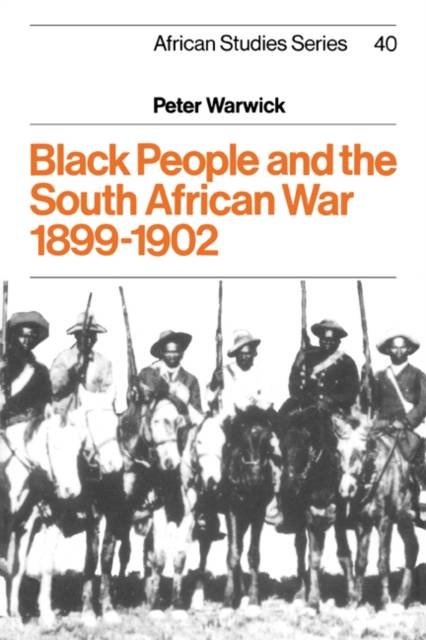
- Afhalen na 1 uur in een winkel met voorraad
- Gratis thuislevering in België vanaf € 30
- Ruim aanbod met 7 miljoen producten
- Afhalen na 1 uur in een winkel met voorraad
- Gratis thuislevering in België vanaf € 30
- Ruim aanbod met 7 miljoen producten
Zoeken
Omschrijving
The South African War was a costly and bitterly contested struggle. It was fought in a region populated by five million people, four million of whom were black. This is the first history of the war to focus upon the wartime experiences of black people, and to examine the war in the context of a complex and rapidly changing colonial society increasingly shaped, but not yet transformed, by mining capital. The ways in which the war influenced the lives and livelihoods of different sections of the black population are studied - from chiefs and newspaper editors to peasant farmers and artisans, to farm tenants and industrial workers. Dr Warwick shows that black people were far more than either spectators to, or passive victims of, a white man's quarrel, and presents a thorough revision of accepted views on the war. He reveals the vital roles performed by black people in both the British and Boer armies, and shows how the regular and irregular participation of blacks exercised an influence upon the course of war.
Specificaties
Betrokkenen
- Auteur(s):
- Uitgeverij:
Inhoud
- Aantal bladzijden:
- 244
- Taal:
- Engels
- Reeks:
- Reeksnummer:
- nr. 40
Eigenschappen
- Productcode (EAN):
- 9780521272247
- Verschijningsdatum:
- 26/08/2004
- Uitvoering:
- Paperback
- Formaat:
- Trade paperback (VS)
- Afmetingen:
- 152 mm x 229 mm
- Gewicht:
- 362 g

Alleen bij Standaard Boekhandel
+ 135 punten op je klantenkaart van Standaard Boekhandel
Beoordelingen
We publiceren alleen reviews die voldoen aan de voorwaarden voor reviews. Bekijk onze voorwaarden voor reviews.








